
致力於研究、設計與實現共生、永續、健康社會的教育者、研究者與系統思考者。 Linkedin: https://pse.is/liay ResearchGate: https://pse.is/rgay
Mourning Abe Shinzo with "Attack on Titan", and on the crisis of "incommunicability"
A "supporter" or a "destroyer" of democratic peace? ——Abe, each statement
Many Taiwanese or Hong Kongers will probably be surprised when they see the news, thinking that Abe is so good, why is the murderer "dissatisfied with Abe" to the extent that he wants to assassinate him? What's wrong with this murderer?
In fact, since I started in-depth communication with Japanese in 2013, I have gradually discovered that Japanese predecessors and friends, whether it is sociology, economics, philosophy, law, sustainable agriculture, cooperative movement and democratic education circles or ordinary people in the market, although the degree of Differing, but the overall inclination is unhappy with Abe.
Originally, I didn't know Abe very well, but compared to Taiwan, I clearly felt that my attitude towards Abe in the Japanese interpersonal circle (even though they may not know each other) and Taiwanese's stance on Abe are completely different. In Japanese parlance, anti-Abe is the "air" that I take for granted in the Japanese stratosphere.
Although I have not done any serious research on Abe, based on the daily conversations I have heard, the main reasons for their anti-Abe can be roughly divided into the following points:
1. Conservative about gender equality
Abe's public stance on gender equality is more conservative. He opposed the "separation of surnames for husbands and wives", believing that it would "disintegrate the family" and advocated that the emperor should only be succeeded by men. In 2006, Japan's "Basic Law of Education" was also revised under the promotion of the Liberal Democratic Party, removing the "cooperative education for men and women" in the nine-year compulsory education, and allowing men and women to be divided into groups, classes, and branch schools. There is a new legal basis. Therefore, when it comes to gender equality issues, the Japanese people I know often regard Abe as one of the main obstacles to gender equality in Japan.
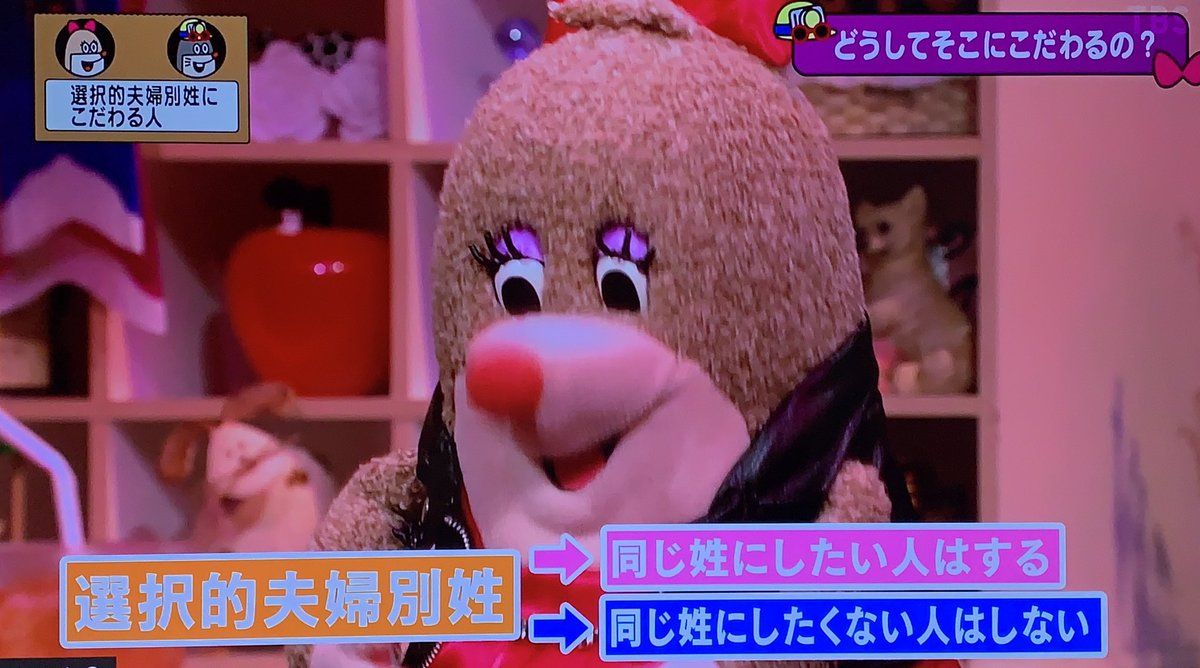
2. "Abenomics" worsens the gap between the rich and the poor
Abenomics emphasizes economic internationalization, and basically follows the line of strengthening the rules of the neoliberal game. My Japanese international circles agree that big chaebols are the main body of "saving the economy", and small and medium-sized enterprises, small farmers and ordinary people's lives. well-being at the expense. On the whole, after Abe became prime minister for the second time, although Japan's stock price has risen and the overall employment rate has increased, many people believe that the gap between the rich and the poor has also widened (the left and right interpret different aspects of the data from different perspectives, so that Japan is still debating whether the gap between the rich and the poor has widened. Endless) - rising prices, rising Engel coefficient, people's real wages falling, small and medium-sized enterprises and informal workers are becoming more and more marginalized... In this context, various statistics show that people generally have no sense that life is getting better, Depression and other physical and mental illnesses are getting worse, and the small and medium-sized business community even calls Abe's term "the era of big waste."
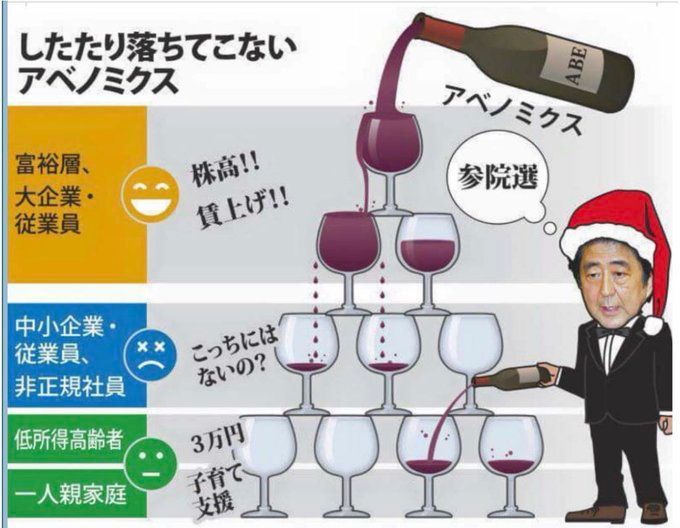
3. Neglecting ecological sustainability, and even being seen as perverse
Natural ecological sustainability is not a policy focus of Abe's term. If Abe has any policies on the environment, the ones that attract the most attention are probably restarting nuclear power generation, lifting the ban on whaling and withdrawing from relevant international organizations.
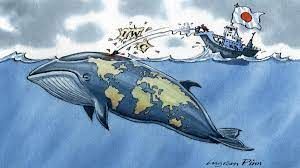
4. The hawkish stance shakes Japan's "peaceful nation"
In 2015, Abe vigorously passed the "Security Law" (to expand the authority of the Japanese Self-Defense Forces to allow them to participate in the military operations of allied countries) legislation, which was met with backlash by more than half of the Japanese people and even called it the "law of war". But the Security Law is just a prelude. He further advocated the revision of the Japanese Constitution (Article 9) known as the "Peace Constitution" (stipulating that Japan permanently renounces the right to use war as a means of resolving international disputes, and abandons military forces above self-defense functions), and as early as 20 years ago He has shown a positive attitude towards possessing nuclear weapons, and in recent years he has put forward the idea of "nuclear sharing" with the United States, touching the taboo of many Japanese who were absolutely anti-war after World War II and the dream of the nuclear explosion of World War II and the 311 nuclear disaster. In addition, behaviors such as visiting the Yasukuni Shrine and denying the history of "comfort women" evoked the pain of militarism in World War II, and further deteriorated Japan-China, Japan-South Korea relations during his tenure. It is true that the South Koreans I know generally don't like Abe either - when they meet their mutual Japanese friends, "anti-Abe" is also often the "air" they take for granted.
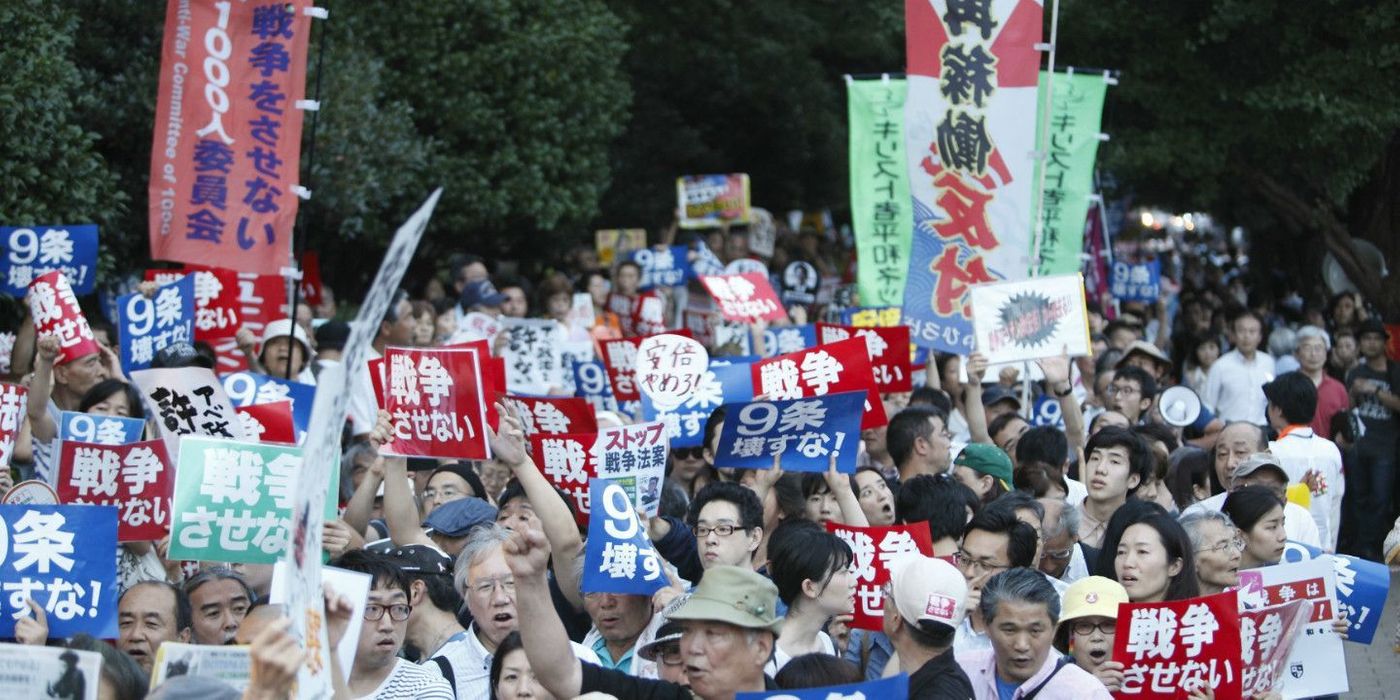
I was very impressed. Once a philosophy professor invited me to an izakaya for dinner and talked about the history of East Asia, he immediately bowed 90 degrees to me, for the Japanese colonization of Taiwan, the invasion of China, and other crimes committed during World War II, as well as their The prime minister who elected Abe apologized. I told the professor that this was a helpless situation caused by various historical conditions, which I can understand. But he interrupted me immediately, maintaining a ninety-degree posture and saying: This is absolutely Japan's responsibility, and the sin is unforgivable.
5. Let education once again serve right-wing political and economic ideology?
However, the Japanese education circle feels more subtle about Abe's mood.
On the one hand, Abe is said to be the first prime minister to take seriously outside-the-system and pluralistic education—he advocates that learning should not have only one appearance, and it is clearly stipulated in the new "Study Guidance Essentials" that "school return (return to school) should no longer be used. Parents and students who have left the system (known as "not going to school" in Japan) should be treated or "corrected" from the standpoint of "going to school", but should be supported by a "diversified development" attitude to support all Japanese families to find their own educational options. . This is an important milestone after a long struggle for Japanese democratic schools and educators who have been isolated from the law for three decades.
However, the education reform of the Liberal Democratic Party led by Abe has also incorporated "patriotism" into the educational goals stipulated in the law, and made "moral education" a subject. Its indicators and teaching content have been criticized for presupposing "correct moral standards" rather than "cultivating spontaneous moral and ethical thinking", in addition to the neoliberal "self-inflicted" values (failure and poverty are due to lack of effort.. etc.) implanted in the hearts of children, and the danger of planting the seeds of militarism restoration (denying that the comfort women were persecuted, but going to the front lines based on patriotism...etc) - in the eyes of many in the Japanese education circle , Abe made education more clearly to serve the country and the market; in the name of patriotism and responsibility and other morals to obliterate empathy and care for the disadvantaged.
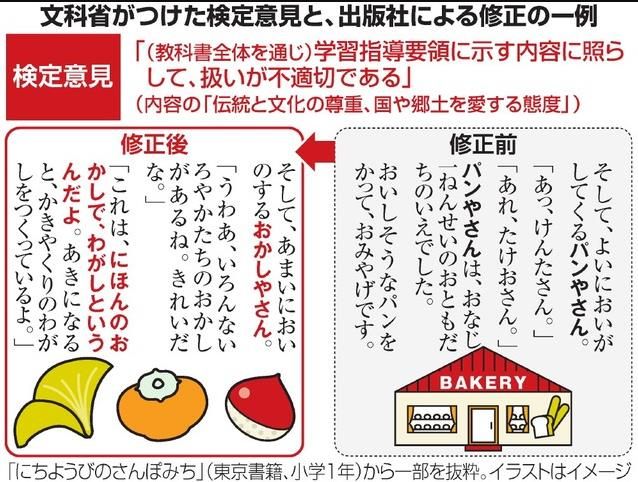
Obviously they were all "Abe Shinzo/Abe Shinzo/Shinzo Abe", but they changed from Japanese to Chinese or English, but what they searched for and heard did not seem to be the same person.
"Abe" is just one of countless microcosms of the growing polarization of global "incommunicability".
Japan's "Attack on Titan" conundrum: Can the "no war contract" be lifted (Article 9 of the Constitution)?
The two bullets, the phrase "dissatisfied with Shinzo Abe", and the farewell of Shinzo Abe made me feel heavy all day.
When I fully observed and realized this heavyness, I found that what was heavy was not only the death of the "most pro-Taiwan and Japan ally", but also the heartache of why the society was "incommunicable" so far, and how the "incommunicability" will become more intensified. Worry, and deep empathy for the "difficult (more than a dilemma)" situation faced by Abe as the longest-serving prime minister after the war.
This kind of empathy, I suddenly found that it may be more vivid and three-dimensional to interpret with the elements, structure and settings of "Attack on Titan".
In the past, the Eldians used the power of giants generated by aliens to overturn the fate of small clans and achieve the "Eldia Empire"; Tulue enslaved the surrounding countries, but also built bridges for various ethnic groups with the power of giants , paving the way, promoting construction and social progress. Most people can only see the former version of history, and are taught to repent and atone for their original sin; a few see the latter, which has been concealed. Glory of yesteryear.
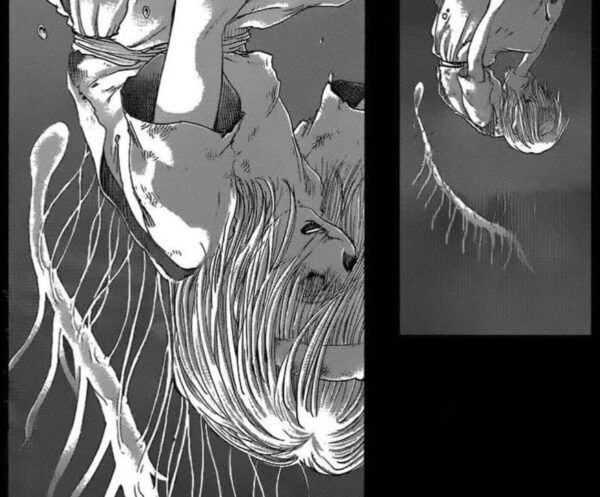
This history can be roughly compared to Japan’s sudden and rapid use of advanced Western (alien) knowledge, systems, and technologies after the black ships entered the port, making Japan, which was originally behind the surrounding countries, a “Great Japanese Empire” and gradually dominate the Asia-Pacific. During this period, Japan brutally slaughtered and enslaved all ethnic groups in the Asia-Pacific region in the name of the "Greater East Asia Co-Prosperity Sphere", but it also brought infrastructure to the colonies that greatly improved their lives. After the war, the international rejection of Japanese imperialism and its atrocities was reflected in the ideological indoctrination of the Eldians in various countries; some basic Japanese doctrines believed in the ideal of the "Greater East Asia Co-Prosperity Sphere", and dissatisfaction with Japan's international situation , the paranoia about part of the history of "benefiting Asia" during the colonial period rests in the self-awareness of the Aldia Restorationists.
The country of Eldia after the retreat of Parady Island is roughly a metaphor for the institutional culture of contemporary Japan. "Permanent renunciation of war (no war treaty)" and "not maintaining war power" in Article 9 of the post-war Japanese constitution correspond respectively to the "no war contract" and "renunciation of the power of giants" imposed on him by the 145th King Fritz. Build three high walls." The "best talents" of the Corps promotion (admission) system are used by the military police (the rigid and conservative chaebol), while the "ordinary talents" become the garrisoned corps, which lacks a sense of crisis (compare the reactions of the guards when President Reagan and Abe were assassinated, with emotion. especially profound). Parade Islanders, who do not know the world outside the wall, are afraid to step outside the wall, and are content with the status quo, seem to be a portrayal of contemporary Japanese who are considered to be generally unconcerned with international affairs, afraid of speaking English or contacting the world, and unwilling to change society. .
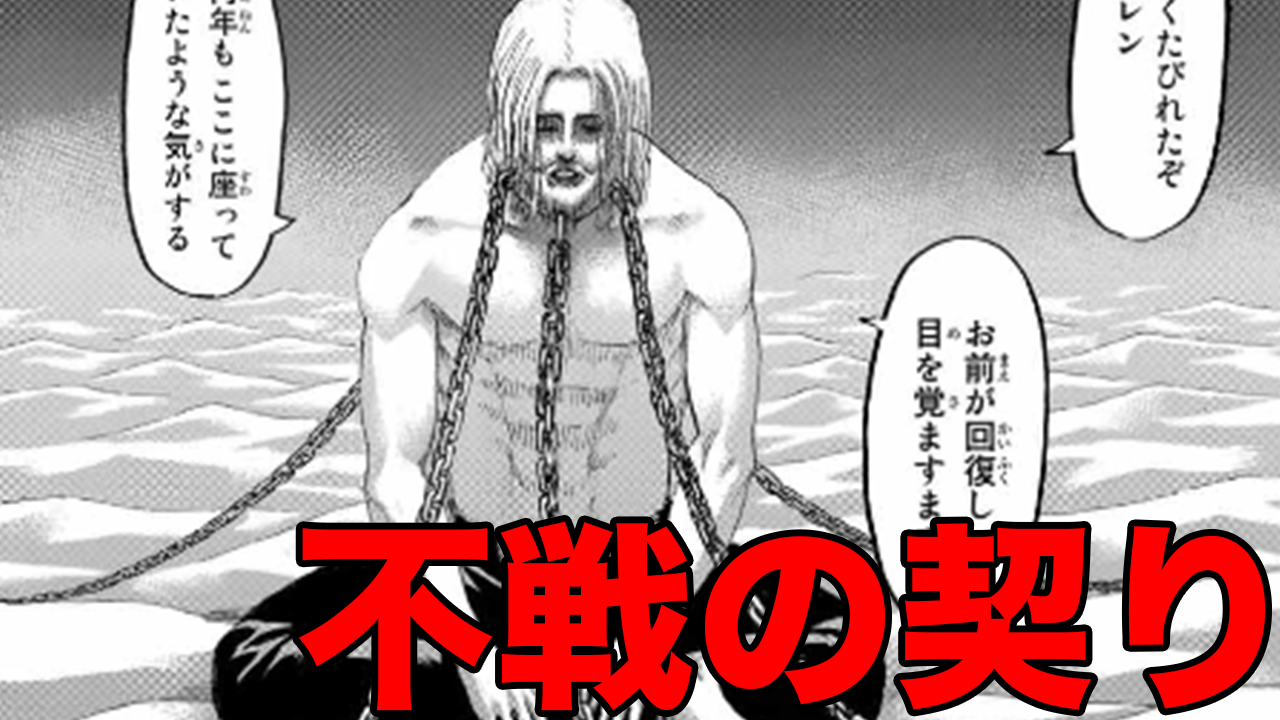
The Japan that Shinzo Abe took over is like the country of Eldia, which is self-proclaimed on Parady Island in the writings of Isayama. It's just that Abe must have seen the "world beyond the wall" or "the truth of the world" earlier than Erenyeka and others:
The old world imperial order has been leaked, and rising geopolitical tensions will inevitably keep Japan out of the picture. Compared with the turmoil and turmoil that various countries are experiencing, although Japan can be described as a safe and comfortable place to live at the moment, the people generally lack the vision, courage and courage to face the outside world. The "no-fight contract" and "the lack of combat power" make the current peace even more likely to collapse and vanish in an instant due to changes outside the walls at any time.
In this context, Abe led the Liberal Democratic Party to forcefully pass the "Security Law" and continued political mobilization, intending to amend Article 9 of the Constitution. The extremely controversial, I am afraid that it is no less than rescinding the "no war contract" set up by King Fritz of the 145th. The starting point of "holding up" or "breaking" the no-fight pact is to stop the killing and protect the people. "Incommunicability" makes the latter a source of chaos for extremists or social stability in the eyes of the former, while the former becomes a tumor in the eyes of the latter that allows the frogs to boil in warm water and eats away at the future of the country - as the confrontation becomes more and more serious, the more More and more convinced: have to get rid of each other. When the "incommunicability" turns into a stage of "use of force" or "civil strife", the identification of extremists or social tumors also "generates" a "reality" or "fact" that corresponds to it (although Isayama's "cruelty" throughout the play The world" motif, and the vested interests and hypocrisy of "no-war pact" advocates seem to make it easier to take the protagonist's side - apparently Isayama and the scholars behind such works as "Humankind: A Hopeful History" different worldviews).
From this point of view, for assassins (the word "assassin" was chosen instead of "murderer" because the word murderer presupposes too strong a moral negation - the complexity behind the assassination of the head of state can never be reduced to For me or some anti-war people, the assassination of Abe "maybe" can be compared to Rodrez and others who successfully recaptured the power of the ancestor giant from Eren Yeka in advance, kept the no-war contract, and prevented Eren Yeka in the future. Blast away.
(Of course, Isayama's Roderes faction, because it represents vested interests, has a hypocritical image, and stands on the opposite side of the protagonist, may not be sympathetic to people. But in the future, Ai Lian really launched the ground cry, and even his closest friends were beheaded. Airen's action may also show that Isayama knows the worst risk of breaking the non-fight contract, and it also gives reasonable justification for the beheading operation of righteous killing of relatives in the worst case. Even if Airen/Abe is cute in every way, very good, People who are liked have to do the same.)
Behind the longest prime minister's term in history, the right-wing attempt to "reserve differences and seek common ground"
Of course, the creation is greatly simplified and dramatized/conflicted after all. In reality, of course, Abe did not launch a riot like Ellen. Many Western leaders (but Russia, China, and South Korea probably do not recognize it) even rated Abe as "one of the most important guardians of global democracy and peace." This is not only due to the fact that Japan is not like the country of Eldia, and is regarded by the world as a scapegoat (although Japan’s economy took off and really “superseded Britain and caught up with the United States” did make the West jealous, and many respects regarded it as a scapegoat. As a competitor), he was originally the main ally in Asia of the capitalist world; even in the era of democratic constitutionalism, Abe has become the longest-serving prime minister in Japanese history, much higher than the previous prime ministers who had been in office for most of one or two years. The actual performance of the replacement can see the superb political skills, wisdom and management of Abe.
Rather than leading social progress, government leadership in a democratic era may be more of a compromise. Although I generally agree with the reasons why my seniors and friends in Japan and South Korea are dissatisfied with Abe, compared with other government leaders, I see some efforts that may be Abe's pursuit of "Yamato".
Even if Abenomics takes the path of neoliberalism, Abe's vision and strategy of making Japan a "land of beauty" (with "human experience" as the core concern of industrial development, such as focusing on the development of tourism and other industries) may make Japan has more room for development in terms of "texture" and "human taste" than a fully neoliberal society such as South Korea. From the neighbors who rented the apartment in Japan to the international students who happened to meet at events, I have encountered South Koreans who fled to Japan from "hell North Korea" again and again, because they feel that Japan's living and working environment, pace, consumption level, etc. And so on, they are more able to "live like a person" than South Korea (indeed, most of my senior friends in South Korea were forced by society to form their own "micro-society" or "life-eco-village" ).
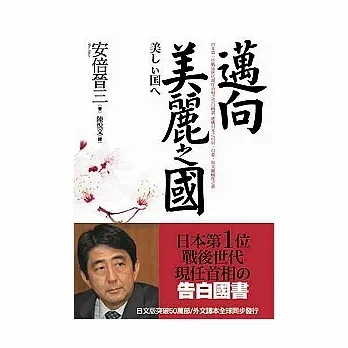
In addition, during his tenure in office, Abe initiated local creation and vigorously advocated local autonomy. Although the way it works is still referred to as "local Abenomics," it does move in the direction of reducing the concentration of resources in the metropolis and chaebols.
Perhaps Abe's strong passing of the "Security Law" in 2015 not only aroused an uproar among Japanese anti-war people, but also stimulated the sensitive nerves of China and South Korea. However, the international situation at the time was that in 2013, North Korea unilaterally terminated the Korean Armistice Agreement and launched four missiles into the Sea of Japan; in 2014, China failed to fulfill its promise of "true universal suffrage" in Hong Kong, detonating it for more than two months, but it was all rejected with its demands. The "Occupy Central/Umbrella Revolution" refused to be accepted; the Islamic State has been active in waging war since 2013, and reached its territorial peak in 2015...
Compared with the Sino-US trade war in 2018, the anti-extradition movement in Hong Kong in 2019, and the Ukraine-Russia war in 2022, many Western countries have gradually become aware of the reshuffle of the post-World War II order. As early as 2012, Abe published "Asia. The concept of "Asia's Democratic Security Diamond" advocates that Japan, India, Australia, and the United States are the coordinates to redefine the "Indo-Pacific region/order" with democracy and human rights as the common value, and strengthen regional strategic development and cooperation. Whether Abe's line will help ensure regional security, or has fueled the tension and confrontation between the U.S. and China - it cannot be denied that Abe has presciently proposed a pragmatic strategy based on "one of the many peace lines", and has He overcame many difficulties, took on controversies, and sacrificed his life.
Abe's most important political legacy: pursuing the greatest common denominator of a democratic and pluralistic society with "sincerity"
Even a kind-hearted person who strives to communicate and reconcile like Armin, once he takes on a complex reality that is far greater than himself, he will eventually have to "get his hands dirty". All he can do is to constantly question his conscience to avoid losing his original intention after constantly getting his hands dirty.
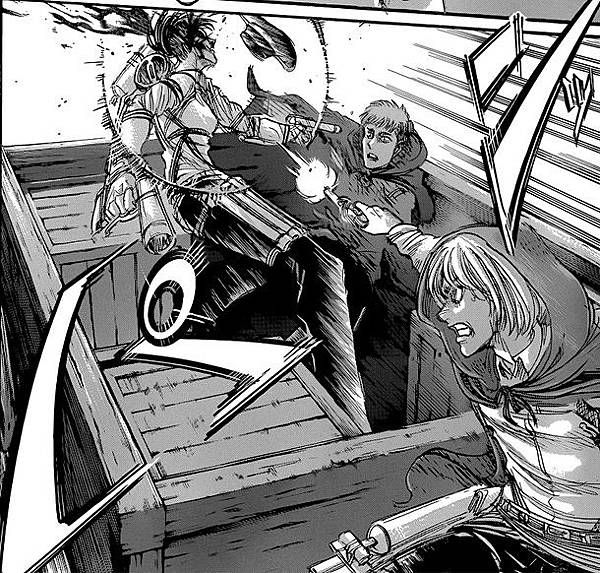
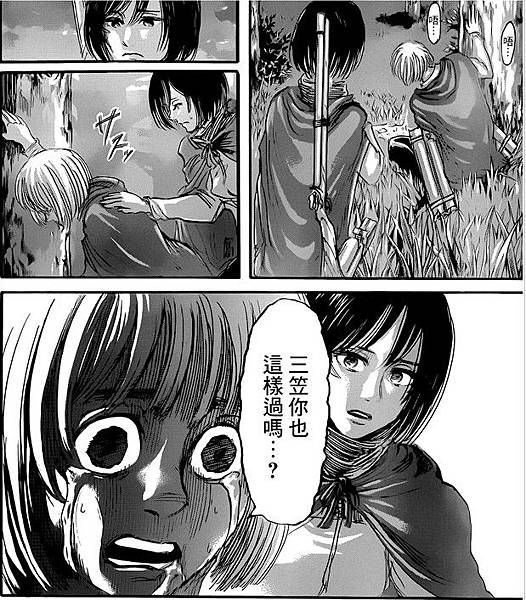
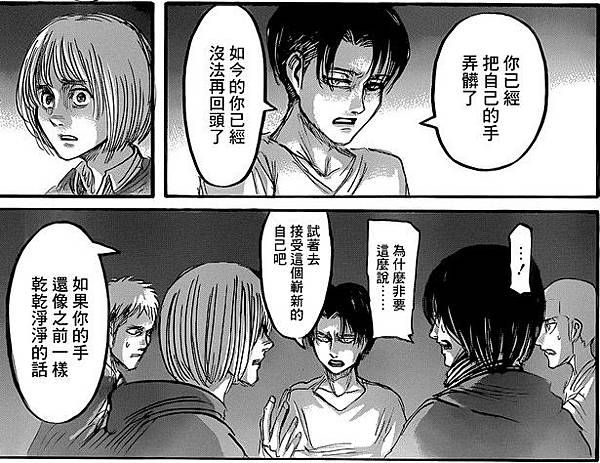
It is said that Shinzo Abe's motto is "Don't forget the original heart (the first heart forgets るべからず)" and Mencius's "The sincerity does not move will not be there". Regardless of political friends or enemies, most of them positively commented on Abe's "kindness", "sincere" and "generous" personality.
Although Abe's true medical condition is unclear, if he is a sincere person full of ideals and does not give up his efforts to deal with the most intriguing and intriguing political arena in society for his ideals, it may explain why he suffered from stomach ulcers in his two terms as prime minister. Deterioration and resign. Just as the protagonists of "Giant" finally silently swallowed all kinds of suffering that went against their hearts, they couldn't help themselves, and no one could complain.
However, yesterday's two bullets not only assassinated Abe, but also further intensified the tension between Abe and anti-Abe factions.
After a day, many Japanese people have been seen on Twitter swearing to inherit Abe's "constitutional revision", "nuclear sharing" and "imperial male line inheritance". The "truth" that destroys Japan's spirit of democracy, equality, and peace" and "deteriorates the well-being of Japanese society and people". Many netizens in China even celebrated Abe's death.
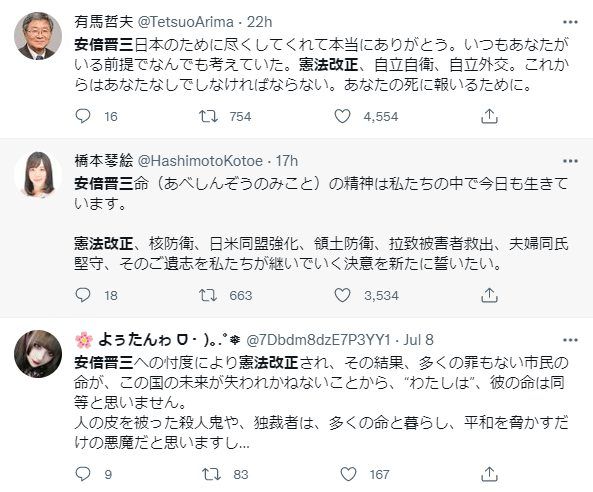
Just as how many people in history used the name of "God" to destroy humanity, how many people in the future will use the name of "Abe" to push Japan further into a more serious confrontation?
Rather than taking Abe's "concrete propositions" as his legacy, which requires constant communication, revision, and seeking consensus due to the conditions of time and space, and "sincerely" pursuing the spirit of the greatest common divisor in a democratic and pluralistic society, I am afraid that Abe can help the increasingly polarized 21. century society left the most important political legacy.
Abe may have tried his best to "harmony but be different", but he still died because of "incommunicability", which shows that the government leaders can do only limited in the end. Keeping the heterosphere in constant communication and seeking common ground while reserving differences requires the joint efforts of people around the world.
We are obliged to do so.
Like my work?
Don't forget to support or like, so I know you are with me..
Comment…